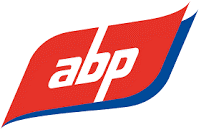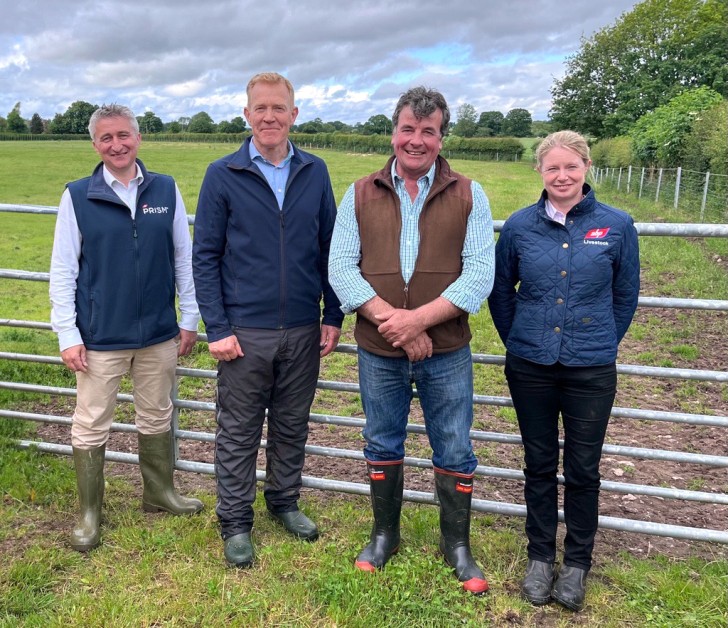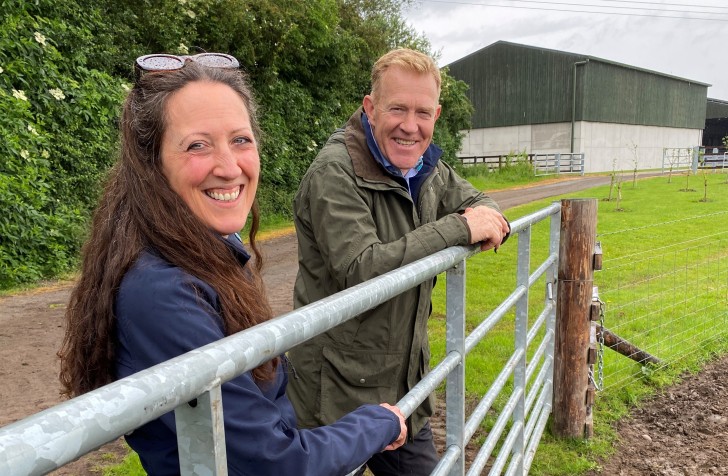Putting the meat on the bones: Television team shine spotlight on ABP's carbon calculation programme
 BBC Countryfile presenter Adam Henson shared a behind-the-scenes insight into ABP Food Group's sustainability initiative during Sunday's edition of the popular programme.
BBC Countryfile presenter Adam Henson shared a behind-the-scenes insight into ABP Food Group's sustainability initiative during Sunday's edition of the popular programme.
Viewers watched Adam as he explored the details of the Programme for the Improvement in Sustainability of Red Meat 2030 (PRISM 2030). The groundbreaking project has spent the last 12 months assessing the carbon footprint of 353 farms from across ABP's beef and lamb supplier network.

Phil Hambling, Adam Henson, Andrew Macleod, Liz Ford
"The carbon footprint of British beef is less than half the global average, but to stay ahead and keep driving change in the industry we need research like this to reach farmers and consumers," said Adam.
The filming took place at Bromstead Farm, ABP's mixed 380-acre (153 ha) grassland and arable research farm in Staffordshire.
Helping Adam understand the data that has been gathered so far was Professor Jude Capper, of Harper Adams University. Jude took figures collated by Agrecalc, the agricultural carbon calculation system, and farm business advice from The Andersons Centre to provide each participant with a detailed feedback report about areas they could improve efficiencies, productivity and - ultimately - profitability.
PRISM's top carbon reduction tips that cattle and sheep farmers could consider include the following, for many it is about minor tweaks to improve productivity:
- Improving pastures (rotational grazing, soil testing, incorporating different plant species etc.)
- Reducing finishing age (through selective breeding)
- Improving livestock health (to improve fertility and overall health status)
- Reducing fuel consumption (simple things like reducing tyre pressure and turning machines off rather than leaving idling can have a significant impact)
- Use co-product feeds (where co-products are available, they are useful feeds and can lower carbon footprints associated with livestock feed)
"This has been an amazing year of data collection and analysis, with so many interesting insights from farms of all types and sizes across the UK," reflects Professor Capper.
"There are clear opportunities to improve on every single farm, regardless of the baseline, and these are linked to improving both productivity and profitability."

Jude Capper & Adam Henson
Speaking to Phil Hambling, Adam said: "It's fascinating to see the results that this work has created, and to understand how partners and farmers within the beef and lamb industry have worked together to achieve them. As a farmer I have certainly leaned a lot, and hopefully with the work you're doing you'll be able to build confidence in the consumer"
Professor Capper added: "Having established the carbon footprint baselines, we're now analysing the data further to identify what characteristics or practices are associated with the best farms so that those can be shared with the wider group. It's ultimately very simple for any farm - take a good look at your key performance indicators compared to similar farms, identify where you could improve, and then do it!
"It was a joy to be joined by Adam and the Countryfile team. Sharing our findings with a wider audience is at the very heart of PRISM 2030. I'm pleased to report that before he left Adam and the Countryfile team enjoyed a delicious roast beef lunch kindly prepared by Bromstead Farm Manager Andrew Macleod's wife, Diane."
Professor Capper also said that an unexpected bonus of the programme has been the community of interested people that has been built up around it. Over the past year through PRISM 2030, ABP has hosted 39 meetings with 966 farmers. All of the online meetings have been recorded and have become an important extra resource via the programme's YouTube channel (PRISM 2030). 155 farmers have also benefited from a special sustainability grant to improve their farm operations, and the PRISM 2030 newsletter has been distributed to 7,000 subscribers with an average open rate of 49.8% over the past 10 months - far above the industry average. abpfoodgroup.com




